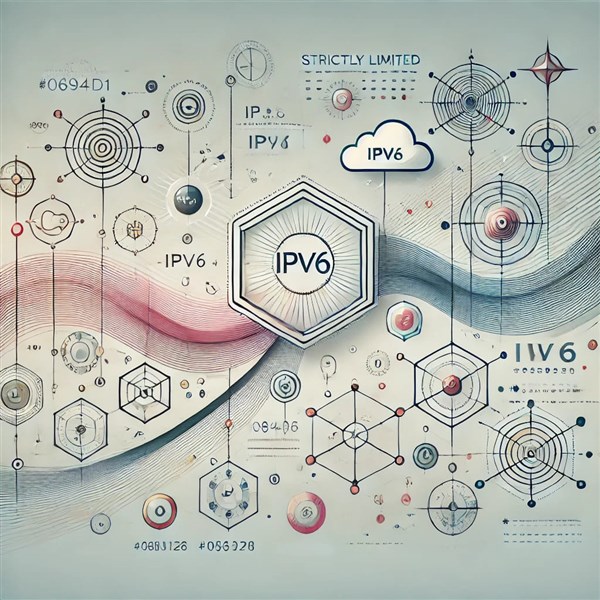Unable to find what you're searching for?
We're here to help you find it
As the demand for faster, more efficient internet connectivity grows, so does the need for the latest networking protocols that can support the ever-increasing number of connected devices. IPv6, the latest version of the Internet Protocol (IP), was developed to replace IPv4, addressing the limitations in IPv4's capacity and efficiency. Although IPv6 has been around for years, its adoption is now accelerating, and professionals skilled in IPv6 are increasingly in demand. Earning an IPv6 certification can be a career game-changer for network engineers and IT professionals who want to stay at the forefront of the networking industry.
One of the most compelling reasons for IPv6 adoption is the exhaustion of IPv4 addresses. IPv4's 32-bit addressing scheme allows for about 4.3 billion unique addresses, which is insufficient for today's connected world. IPv6, with its 128-bit addressing system, supports a vastly larger number of addresses, effectively removing limitations. As IPv6 adoption expands, companies need professionals trained in the protocol to implement and manage IPv6 networks efficiently.
Key Skills Gained:
Earning an IPv6 certification can open new doors in network engineering, IT security, and beyond. Many industries, including finance, healthcare, telecommunications, and government, are transitioning to IPv6 to keep pace with the growing demand for reliable, secure connectivity. Professionals with IPv6 skills are essential for designing, implementing, and securing these networks.
Career Opportunities for IPv6-Certified Professionals:
For network engineers and IT professionals, staying updated with the latest technology is crucial. IPv6 certification helps individuals develop a robust understanding of the latest protocol advancements. This includes IPv6's unique features, like its simplified header format, support for autoconfiguration, and native security features such as IPsec.
Important Features of IPv6:
Many countries, particularly in Asia and Europe, are adopting IPv6 faster than others. Being IPv6-certified can position network professionals for roles in multinational companies or organizations that need to operate globally. For professionals interested in relocating or working for international organizations, an IPv6 certification signals readiness to meet global networking standards.
Examples of Global IPv6 Adoption:
IPv6 includes several features that address some of the security concerns in IPv4. With the native integration of IPsec and an address allocation system that simplifies tracking, IPv6 offers improved network security. IPv6 certification programs often focus on the protocol's security aspects, providing network professionals with the skills to secure networks from common vulnerabilities.
IPv6 Security Features and Skills:
As more organizations adopt IPv6, many governments mandate that certain services be IPv6-compatible. This is particularly evident in the U.S., where the Office of Management and Budget has directed federal agencies to transition to IPv6-only networks. By earning an IPv6 certification, IT professionals can contribute to compliance efforts, positioning themselves as valuable assets in regulated industries.
Key Compliance Insights:
IPv6 adoption is inevitable as IoT devices and smart technology continue to grow in popularity. Professionals with IPv6 certification are more likely to be adaptable in future networking roles. Mastering IPv6 principles now ensures a skill set that will remain relevant, making IPv6-certified professionals assets in the evolving network infrastructure landscape.
Future Applications of IPv6:
Achieving an IPv6 certification is a formal way to showcase your expertise in the protocol. Employers value certification as evidence of dedication, in-depth knowledge, and specialized skill sets. IPv6-certified professionals may see better job prospects, higher salaries, and greater recognition within their organizations.
Certification Paths and Benefits:
Final Thoughts
In an era defined by connectivity and digital transformation, IPv6 certification equips networking professionals with the skills to meet modern challenges head-on. The migration from IPv4 to IPv6 is an irreversible trend, driven by technological advancements, security needs, and the demand for global connectivity. Obtaining IPv6 certification is a strategic move that can enhance your career, improve your technical skills, and position you as a leader in the IT field. With IPv6-certified professionals in high demand, now is the ideal time to gain expertise in this essential protocol.
IPv6 certification can be a game-changer for your IT career. With the increasing demand for IPv6 professionals, now is the perfect time to invest in this certification. Koenig Solutions, a leading IT training company, offers comprehensive IPv6 training courses that can help you become a certified IPv6 professional.

Aarav Goel has top education industry knowledge with 4 years of experience. Being a passionate blogger also does blogging on the technology niche.










